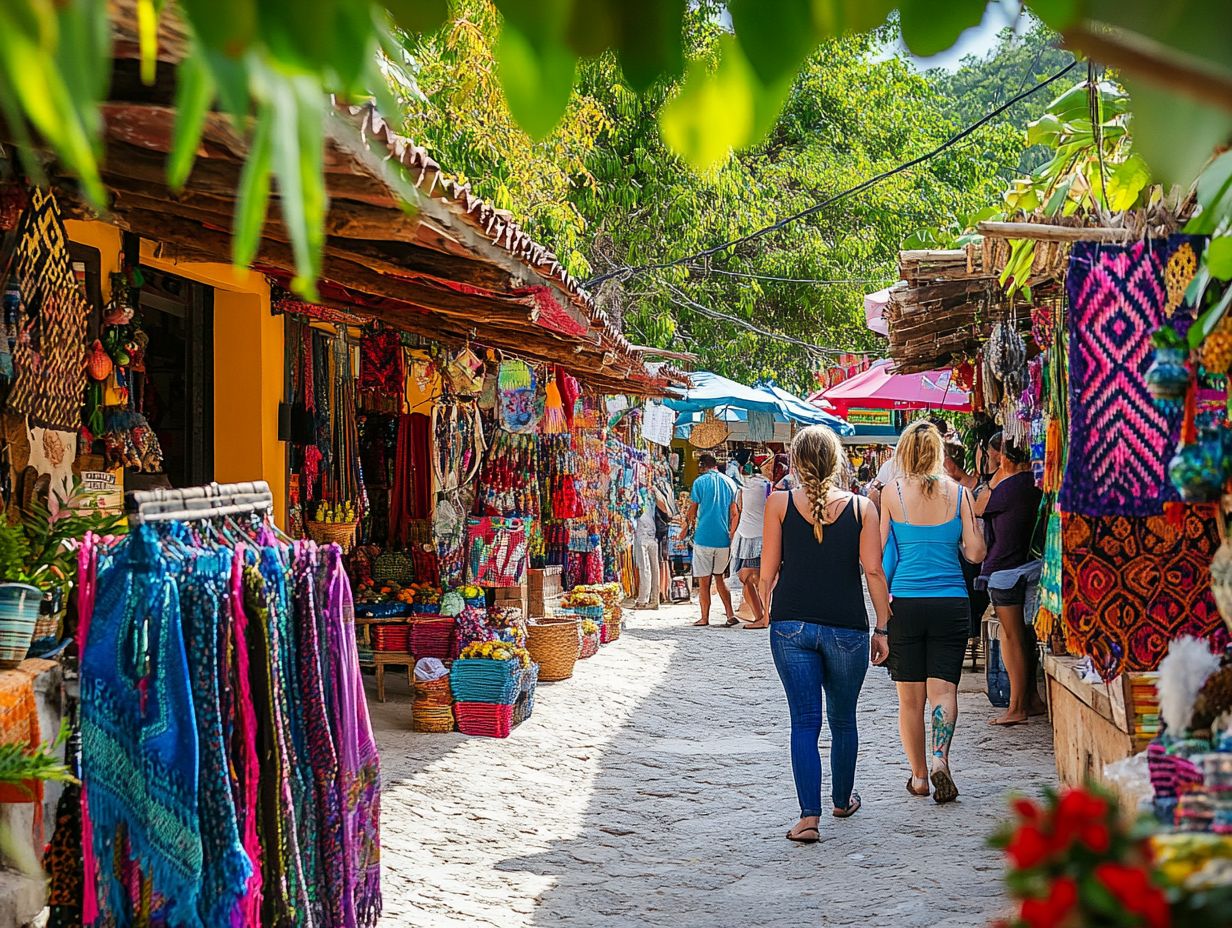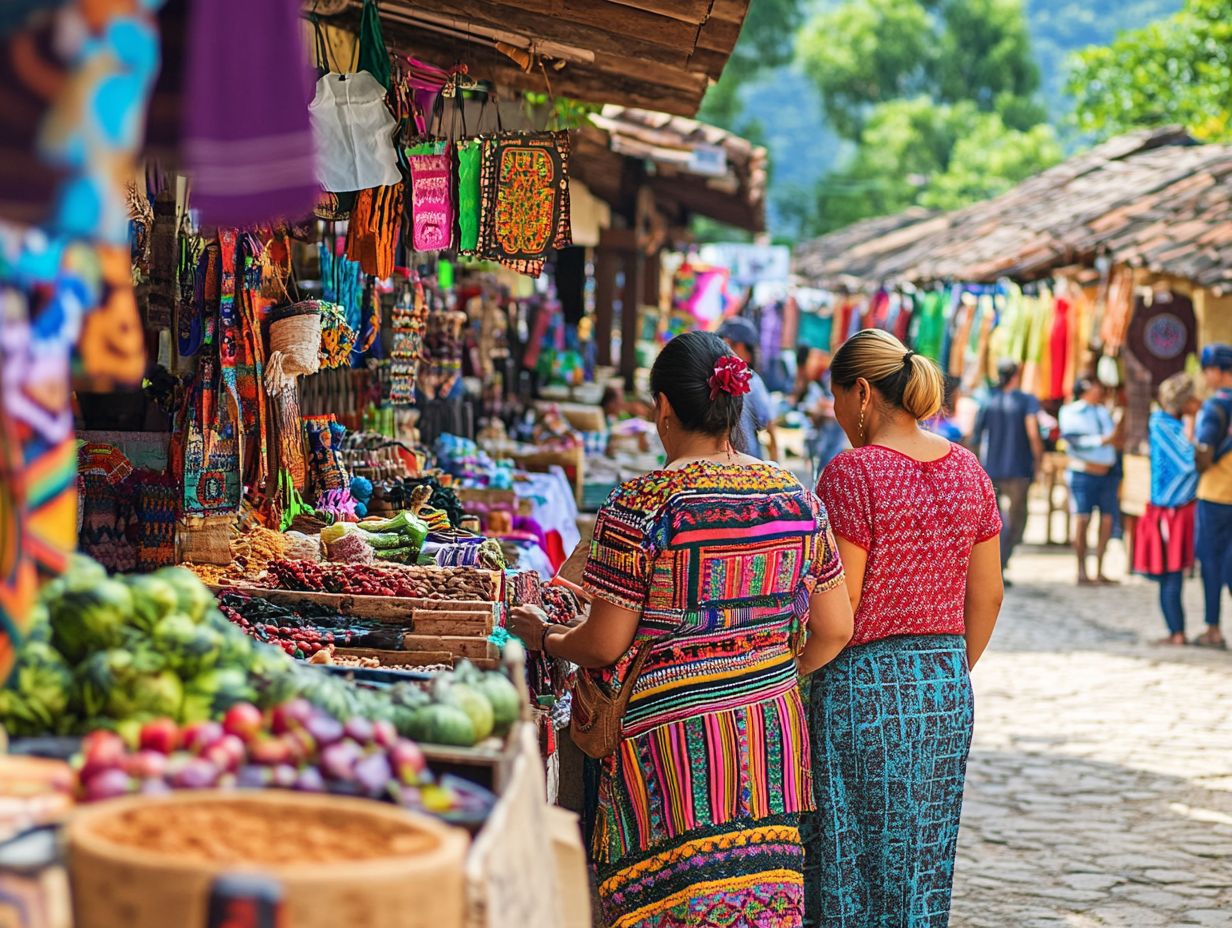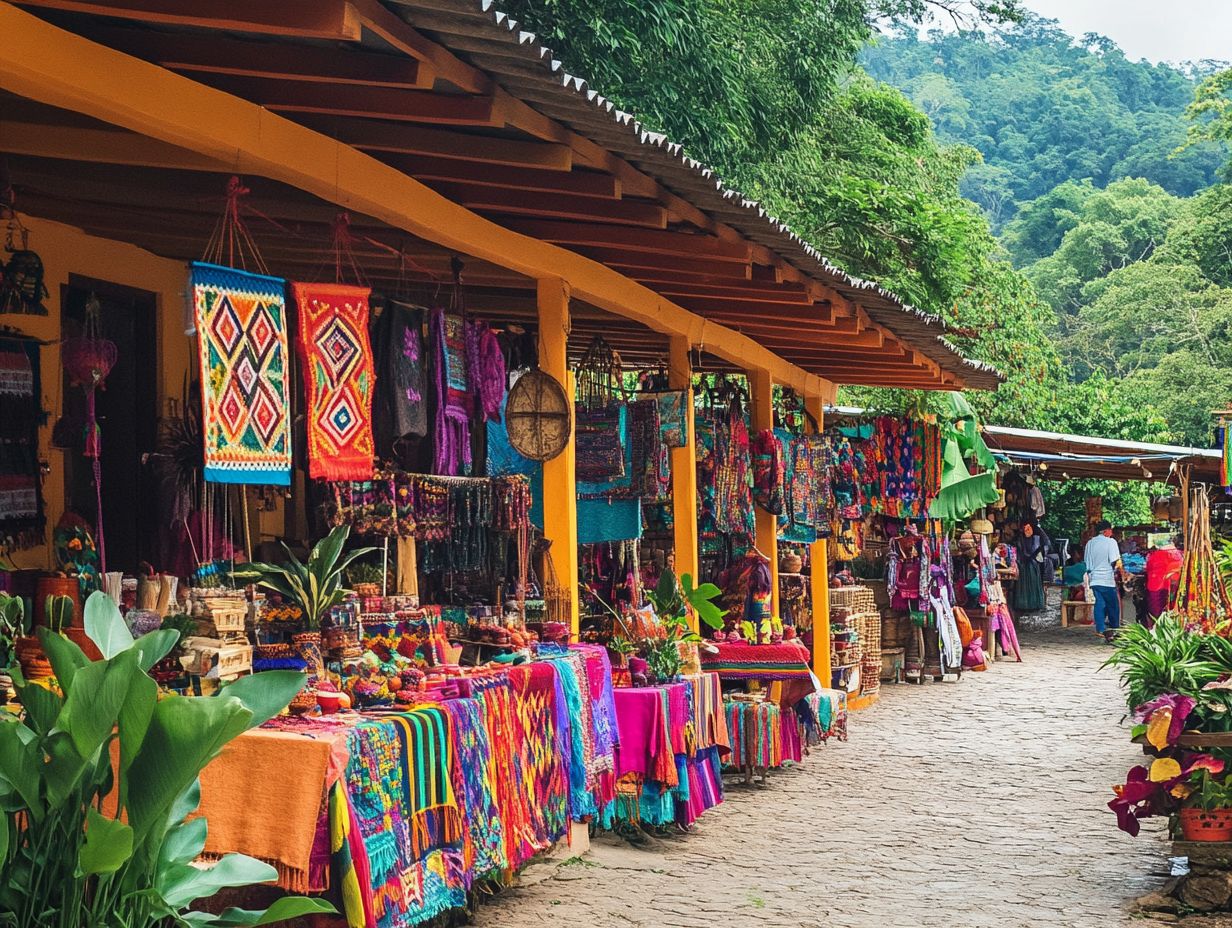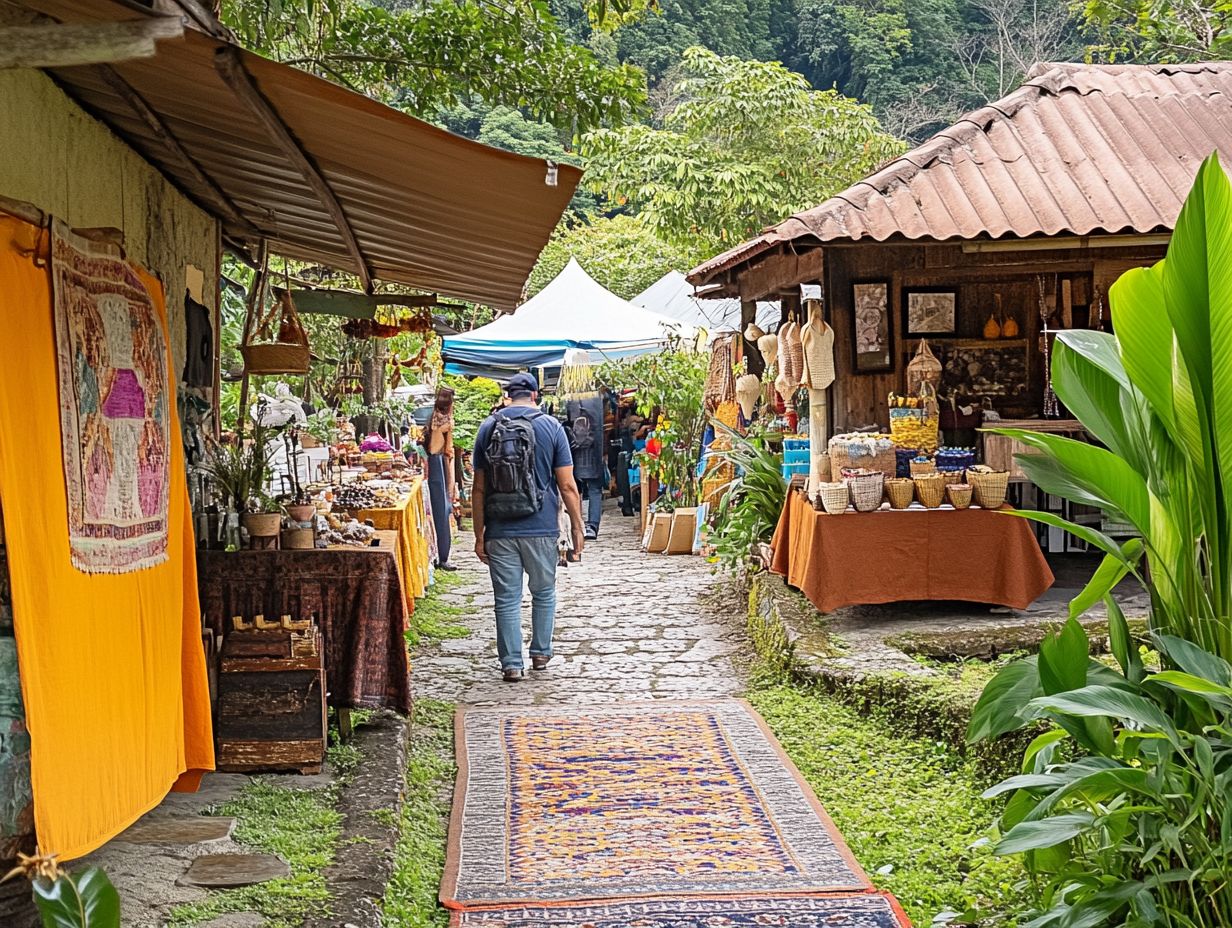The Impact of Responsible Travel on Local Communities
Travel possesses the remarkable ability to transform not only your perspective but also the places you explore.
Grasping the concept of responsible travel is vital for anyone who wishes to leave a positive mark on local communities. Let s dive into what responsible travel really means, outlining its core principles and the myriad benefits it offers economically, environmentally, and socially.
It also sheds light on the detrimental effects of irresponsible practices while equipping you with practical tips to genuinely support local cultures. Discover how your journey can play a role in fostering a brighter future for destinations across the globe.
Contents
- Key Takeaways:
- Understanding Responsible Travel
- The Benefits of Responsible Travel for Local Communities
- The Negative Effects of Irresponsible Travel
- How to Practice Responsible Travel
- Supporting Local Communities through Responsible Travel
- Frequently Asked Questions
- What does responsible tourism mean?
- How does responsible tourism impact local communities?
- What are some ways to practice responsible travel?
- What are the benefits of responsible travel for travelers?
- Can responsible tourism have negative impacts on local communities?
- How can travelers ensure that their travel is responsible?
Key Takeaways:

- Responsible travel helps local communities by boosting their economy, providing a sustainable means of livelihood for locals.
- Irresponsible travel, such as overtourism and cultural insensitivity, can have negative effects on local communities, damaging their environment and culture.
- Travelers can support local communities by practicing responsible travel, which includes being mindful of their impact, supporting local businesses, and engaging in ethical activities.
Understanding Responsible Travel
Responsible travel is all about making informed choices in the tourism industry, allowing you to maximize the positive impact on local communities while minimizing any environmental or cultural harm.
It means appreciating different cultures, engaging meaningfully with the local community, and prioritizing ways to protect the environment throughout your journey.
By adopting responsible tourism practices, you play a vital role in preserving cultural heritage and helping local businesses grow, effortlessly creating a harmonious balance between tourism development and the well-being of the societies you visit.
Definition and Principles
The essence of responsible travel lies in embracing tourism practices that prioritize sustainability, cultural sensitivity, and empowerment. This approach ensures that your travels leave a positive impact on the destinations you visit.
By adopting this mindset, you cultivate a respect for local customs and traditions, paving the way for meaningful interactions with the people you meet. Environmental advocates urge you to embrace eco-friendly practices that lessen your ecological footprint, prompting thoughtful choices regarding your accommodations, transportation, and activities.
Engaging in community planning not only bolsters local economies but also creates opportunities for residents, enriching your experience with authenticity.
Cultural awareness plays a crucial role; understanding social norms and traditions enhances your journey, making it not only enjoyable but also mutually beneficial for both you and the host communities.
The Benefits of Responsible Travel for Local Communities
Responsible travel offers a wealth of benefits for local communities, such as economic growth, social upliftment, and the preservation of cultural heritage. This is crucial for today s travel.
By prioritizing eco-friendly practices, you can contribute to boosting tourism income, generating job opportunities, and fostering community resilience. In doing so, you enrich the livelihoods and well-being of local residents, creating a more meaningful travel experience for yourself and those you encounter.
Join us in making a positive impact on the world through your travels!
Economic, Environmental, and Social Benefits

The economic, environmental, and social benefits of responsible travel are profound. They lead to improved job opportunities, reduced environmental impacts, and enhanced community engagement.
When you engage with local businesses, you re not just a visitor; you re contributing to job creation within the community. This enhances livelihoods and fosters stronger economies, making a tangible difference.
Responsible travel encourages you to adopt sustainable practices, such as supporting eco-friendly accommodations and using resources wisely. This approach actively protects our planet by mitigating pollution and preserving natural habitats. It ensures that the beauty you enjoy today remains intact for future travelers.
Your conscious effort protects the environment and fosters a sense of responsibility among both travelers and locals. By participating in cultural exchanges and community initiatives, you help build social bonds that strengthen local identities and promote mutual understanding. This ultimately enriches the travel experience for everyone involved.
The Negative Effects of Irresponsible Travel
Irresponsible travel practices lead to significant repercussions, such as the erosion of cultural authenticity, environmental degradation, and heightened social tensions within local communities. These negative tourism impacts can compromise community planning initiatives and cause a decline in local services, ultimately diminishing the quality of life for residents.
It’s essential to approach travel with mindfulness. This ensures that your presence enriches rather than detracts from the places you visit.
Examples of Harmful Practices
Harmful tourism practices undermine the essence of destinations, leading to disrespecting local traditions, cultural erosion, and environmental destruction.
You might witness these issues when tourists trample sacred sites or use flash photography during spiritual ceremonies. These actions greatly diminish the significance of cultural events. When travelers swarm fragile ecosystems like coral reefs or rainforests, they jeopardize biodiversity and disrupt the livelihoods of local communities that rely on these natural resources.
Such detrimental behaviors lead to a loss of authenticity and heritage. They create economic challenges for communities that depend on sustainable tourism. This reality underscores the urgent need for responsible choices in your travel endeavors.
How to Practice Responsible Travel
Practicing responsible travel entails deliberate actions that prioritize sustainable tourism, cultural awareness, and support for local communities.
As a responsible traveler, seek out eco-friendly practices, engage meaningfully with the local community, and embrace cultural traditions. This approach ensures your travel experiences create positive impacts on both the destination and its residents.
Tips and Guidelines for Responsible Travelers

Tips for responsible travelers suggest immersing yourself in cultural exchange, supporting local businesses, and engaging in tourism initiatives that empower communities.
By actively seeking out authentic experiences, you enrich your journey and cultivate a genuine connection with the local culture. Opting for locally-owned accommodations and dining at family-run restaurants provides significant economic support to the community, ensuring your tourism dollars benefit those directly impacted.
When you choose to participate in community-led tours, you gain deeper insights into customs and traditions. This ensures your engagement is respectful and beneficial. This thoughtful approach enhances your travel experience and promotes the sustainable development of local economies, transforming every trip into a meaningful contribution to the destination. You can learn more about this by exploring the benefits of responsible travel.
Supporting Local Communities through Responsible Travel
Supporting local communities through responsible travel is crucial for generating positive impacts and promoting tourism that helps the environment. This approach enhances livelihoods and ensures that community planning aligns with local needs.
By engaging in responsible travel, you also help create a vibrant ecosystem that prioritizes the well-being of both the community and the environment.
Ways to Make a Positive Impact
You have several opportunities to make a positive impact while traveling. You can engage in community activities, support local businesses, and advocate for environmental sustainability, all while appreciating the rich tapestry of cultural heritage.
When you choose to participate in workshops led by local artisans, you gain valuable insights into local craft techniques and contribute directly to the local economy.
Volunteering for community projects or conservation efforts fosters deeper connections with residents and enhances your travel experience through shared stories and collaborative efforts.
By making conscious choices, such as dining at restaurants that source ingredients locally or purchasing handmade souvenirs, you reinforce the importance of sustainable practices.
Joining guided tours that prioritize educational opportunities allows you to learn about social and environmental issues, ensuring that your presence fosters respect and awareness within these vibrant cultural settings.
Frequently Asked Questions
What does responsible tourism mean?

Responsible travel refers to tourism that considers the local communities, environment, and economy. It involves making mindful and sustainable choices when traveling, minimizing negative impacts, and promoting positive contributions to the places we visit.
How does responsible tourism impact local communities?
Responsible travel has a positive impact on local communities by supporting their economy, preserving their culture and traditions, and promoting sustainable development. This can improve living standards, preserve natural resources, and strengthen community pride.
What are some ways to practice responsible travel?
Some ways to practice responsible tourism include staying in ecolodges, supporting local businesses, participating in artisan workshops, and respecting local cultural traditions. It’s also important to minimize waste and environmental impacts.
What are the benefits of responsible travel for travelers?
Responsible travel enhances the overall travel experience. By immersing themselves in local culture, engaging in cultural exchange, and supporting sustainable practices, travelers gain a deeper understanding and appreciation for the authentic communities they visit.
Can responsible tourism have negative impacts on local communities?
While responsible tourism aims to minimize negative impacts, there can still be unintended consequences. An influx of tourists can create social unease, strain local infrastructure, and lead to the loss of cultural authenticity. Travelers must be mindful and respectful in their actions.
How can travelers ensure that their travel is responsible?
Travelers can ensure responsible tourism by researching and choosing ethical tour operators, such as IRANomad Tours and Solimar International. Supporting ethical animal encounters, participating in tourism initiatives, and reducing environmental impact are also crucial. Engaging with local communities respectfully is essential.
Join us in making a difference today! Commit to responsible travel and experience the genuine local culture!






